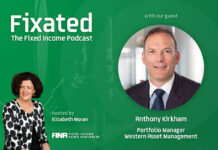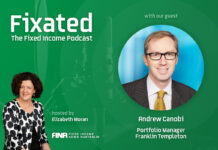
The desire to invest in bonds seems to be back in fashion again after a very poor 1H22. Rates are attractive and investors are flocking back to the asset class.
If you are a first-time investor or thinking about reinvesting, you can invest direct in individual bonds or indirect, through an ETF or managed fund. In this article, we explain how you can access the asset class, advantages and disadvantages of each method and give you some tips that you won’t find anywhere else!
Invest In Bonds Direct
Direct investment is like buying a luxury car or being part of a private bank. You get one-on-one service and are able to choose exactly what you want in terms of:
- Risk and reward
- Maturity dates, so you can time a maturity date to coincide with a large, expected expense
- Bond issuer – financial institutions are big bond issuers. If you already have a substantial allocation to the sector you may want to limit further investment
- Fixed, floating, inflation-linked or structured finance exposure – Depending on your views on interest rates and inflation, you may want larger exposure to some sectors over others
Advantages
- One of the biggest advantages of investing direct is that you have a maturity date. Assuming the company continues to operate, you have a known date when capital will be returned to you
- A dedicated person to help oversee your investments and provide suggestions on which bonds to buy, hold and trade to reflect your personal circumstances
Also read: Bank Bill Swap Rate Riding A Wave
- Presentations and other events where you can meet like-minded investors
- A wide range of securities are available including foreign currency bonds, high yield and inflation-linked bonds which can be difficult to source
Tip – If you want to invest direct, talk to at least three bond brokers before you set up an account. Get a commitment on fees they charge you, including if you sell before maturity or want to move your holdings to another broker
Disadvantages
- Possible illiquidity. In tough markets, liquidity can dry up. Generally, the higher-rated securities (those rated investment grade AAA to BBB-) will be more liquid than the lower-rated (BB+ and below), higher-risk securities
- Every time a bond trader makes a trade, they take a commission. Make sure the trade is in your favour and it is worth it
- Less diversified portfolio. Compared to an ETF or managed fund, investing in single bonds is more expensive, so typically are not as diversified as a fund
- Higher minimum investment amounts, most brokers require a minimum $10,000 investment per bond and at least $50,000 to open an account
- Unknown trading margin, few brokers will regularly disclose the small percentage commission they take on each trade but ask for trading margin quotes from other brokers to make sure the yield you are shown is competitive
- For the large part, securities are only traded in the over-the-counter (OTC) market.
Direct investment means finding a bond broker, so the sector somewhat lacks transparency. However, the ASX does list some bonds, hybrids and other securities
Tip – Brokers take a margin on each transaction, which differs. Before you sign up with a broker ask at least two of them to show you a portfolio of some common bonds.
ETFs and Managed Funds – Indirect investment
Fixed income investment through an ETF or managed fund is a popular choice for first-time investors. Over the last few years, more large international fixed income specialists have opened their doors in Australia so that there is a very wide range of options available.
You can choose a dedicated fixed income fund or a multi-sector fund with an allocation to fixed income. There are a range of strategies to choose from, so it’s worth understanding the characteristics of the various sub-sectors.
Advantages
- Diversification
- Generally a low-cost strategy
- Greater transparency
- Someone else manages the portfolio, so less work managing the investments
- Low minimum investment amounts
- The fund manager can smooth returns and some offer monthly distribution payments
- Funds can be listed making it easier to transact if you already hold a trading account.
Disadvantages
- No maturity date, to recoup capital, investors have to decide to sell the investment
- The fund manager decides how much to pay in distributions which may not reflect income payments from underlying securities
- Some funds have thousands of investments, making it difficult to outperform compared to a smaller direct portfolio
- Few managers outperform indices
- Indices usually include the largest fixed income issuers, that is entities with the greatest debt, not necessarily a strategy you want to employ
- Governments are the largest bond issuers and bonds tend to be fixed rate. Indirect investors should be aware of the underlying fund strategy, particularly in a rising rate environment, where you may not want a large allocation to fixed rate bonds
- Funds can employ passive strategies making them vulnerable to market swings
- Additional currency risk in unhedged global strategies.
Tip – Watch out for a fund of funds. If you are paying a percentage to a manager who just chooses individual funds and they also take a percentage, are you paying too much? Is it better to invest in those underlying funds direct? Perhaps you are paying for access?
General Notes
Any investment requires you to provide personal information about yourself including tax file number and SMSF deed details if you are investing for yourself. If you are investing in ASX-listed securities or funds and already have a trading account, there’s not much you need to do to make a start.
However, if you want to start investing through a bond broker, setting up an account takes a few days and it’s worth setting up and being ready to trade as opportunities in the asset class can literally be there one day and gone the next.

































